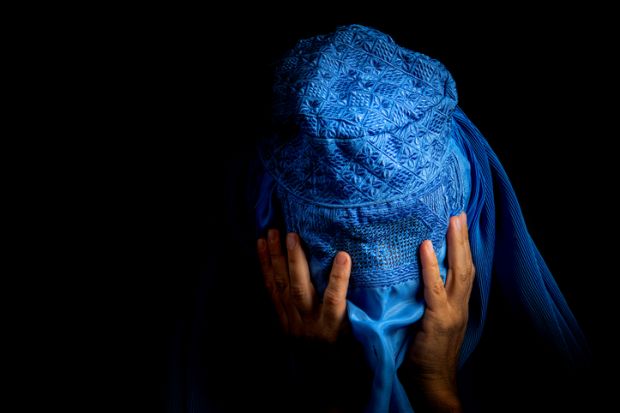Afghan women have been banned from studying at universities in the country, realising the worst fears of many students and academics.
The change was announced by the Taliban’s higher education minister and takes immediate effect.
Under the ruling, public and private universities have been told to prevent female students from entering institutions until further notice.
The move – which prompted outcry from Afghans on social media – is one that scholars have been warning about for months, amid signs the Taliban was embracing increasingly hard-line views.
After it came to power in August 2021, the extremist government made numerous assurances that it would allow girls and women to continue their education. But recent months have seen it undermine those words.
In March, the Taliban reneged on a promise that it would allow Afghan girls to attend secondary school. This year, it put in place gender segregation at universities, with women and men coming in at separate times for classes.
In recent weeks, it further limited women’s participation in public life by banning them from gyms and public parks. Meanwhile, the Taliban’s minister for higher education said its fighters should be allowed to teach in universities without passing exams or showing teaching credentials.
Its most recent move, though, deals a death blow to Afghan women’s opportunities for advancement, further limiting the space for women in society.
Scholars have decried the move, echoing the sentiment among Afghans, many of whom took to social media to denounce it.
Abdul Saboor Matin, a research fellow at the University of Central Lancashire who recently left Afghanistan, where he was an assistant professor of law, said that with its decision, the Taliban “is playing with the fate of millions of female students”.
“Depriving girls from higher education has no accepted logic behind it, other than being a political agenda,” he told Times Higher Education.
Naimat Zafary, a Chevening scholar from Afghanistan and PhD student at the University of Sussex, called the news “heart-breaking”.
“This is version 2.0, an extreme form of brutality,” he wrote on social media.
International human rights groups also condemned the ruling, with the United Nations high commissioner for human rights Volker Türk calling for an immediate reversal of the decision.
“The suspension of women’s participation in tertiary and higher education is in clear violation of Afghanistan’s obligations under international law,” he said.
“The rights of women and girls to access all levels of education without discrimination is fundamental and unquestionable.”
Register to continue
Why register?
- Registration is free and only takes a moment
- Once registered, you can read 3 articles a month
- Sign up for our newsletter
Subscribe
Or subscribe for unlimited access to:
- Unlimited access to news, views, insights & reviews
- Digital editions
- Digital access to THE’s university and college rankings analysis
Already registered or a current subscriber? Login








